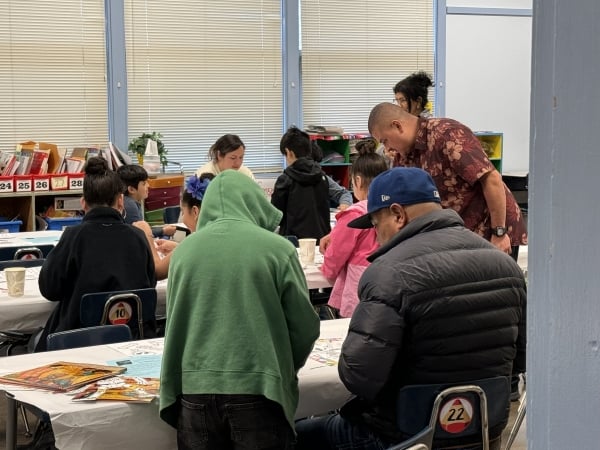You have /5 articles left.
Sign up for a free account or log in.

Education majors at Western Oregon University pursuing their ESOL endorsement can receive financial and mentorship support through a community partnership.
Fat Camera/E+/Getty Images
A new federally funded program at an Oregon university supports the training and development of future and current K-12 teachers serving English learners (ELs) in the state.
Project PROMISE, short for Partnerships, Resources and Opportunities for Multilinguals through Inclusive and Sustainable Education, at Western Oregon University hopes to improve instruction and academic outcomes for ELs in pre-kindergarten through high school in two local school districts.
The program will increase the state’s capacity of effective English for speakers of other languages (ESOL) educators both through undergraduate engagement at WOU and the creation of a graduate program for in-service teachers.
The background: In 2021–22, around 10 percent (over 56,000 learners) of all Oregon students were multilingual students learning English in an English Language Development (ELD) program during the school year, according to a report from the Oregon Department of Education. A majority of these learners are in the elementary grades (61 percent) and most speak Spanish (79 percent).
While these students bring many assets to both the classroom and their communities, there’s an opportunity gap in state assessment data, explain the principal investigators on the grant, Kristen L. Pratt and Maria Dantas-Whitney from WOU.
To bridge this gap, Project PROMISE hopes to equip thoracically and linguistically diverse licensed educators to serve a similarly diverse student group and improve all educators’ skills to better serve ELs alongside their families.
The project—funded through a $2.9 million U.S. Department of Education grant by the Office of English Language Acquisition, National Professional Development program—provides the university five years of funding, starting in 2022.
How it works: Undergraduate students who are majoring in education and receiving an ESOL endorsement can participate in Project PROMISE. Through the program, students receive mentorship from program graduates during their clinical year and financial support to complete their ESOL endorsement.
Project PROMISE will also provide professional development through mentorship for pre-service and in-service teachers and early learning educators, with a focus on equity, access and improving learning environments for multilingual children.
Mentorship, as a practice, helps improve instruction, identify problematic practices and policies and affect change in students, the PIs share. Additionally, it improves mentors’ reflection, creates collaboration and establishes a sense of community among participants.
Mentors are bilingual in-service PK-12 educators who complete a graduate seminar on leadership and mentorship. The pairings meet for at least 10 hours over two quarters and engage in goal setting, action and reflection.
The grant plans for 115 undergraduate students and 75 graduate students.
Another goal of the initiative is to build partnerships among early learning programs, PK-12 schools, families and communities to ensure that the work done with students in school is also connected to home. To do this, WOU partners with Salem-Keizer Public Schools and Hillsboro School District to provide this education.

Western Oregon hosts a “Home School Connection Fair” with Salem-Keizer and Hillsboro teachers, administrators, children and families to provide connections between in-class learning and at-home activities parents and family members can do with their English learners.
Maria Dantas-Whitney/Western Oregon University
One event is the “Home School Connection Fair,” hosted annually with Salem-Keizer and Hillsboro stakeholders, including kids and parents, that features a bilingual/bicultural author who presents their book. Teachers and administrators share literacy experiences that can be replicated at home, such as read-aloud, storytelling, book-making and more. Families also receive a copy of the author’s book to take home.
The impact: The PIs see the project as an opportunity to combine practice, research and advocacy to diversify the PK-12 workforce and address systemic inequities for multilingual learners.
Since launching, 107 individuals have participated in Project PROMISE, including 46 current students, 37 in-service educators and 24 mentors.
The project is being evaluated through observational and participant surveys, focus groups and engagement data.
If your student success program has a unique feature or twist, we’d like to know about it. Click here to submit.
74a2.jpg?itok=aGrC82hx)


